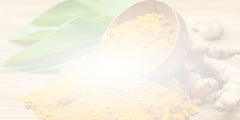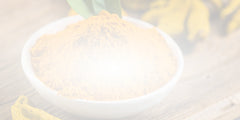
Humans are one of the most physically contradictory species on the planet. In some ways, we are robust and can handle almost any pain. In others, we are far more delicate and suffer pain and injuries that are impossible to ignore. Even the more durable parts of the human anatomy are subject to extreme pain when they are injured. The back is one of the most notable examples of a part of the human body subject to this pain. Our backs carry the weight of our bodies throughout our entire lives. However, when damaged, the durability of our back is lessened, and we are left unable to function.
This pain becomes even more unbearable when it affects our lower backs, which offer the bulk of our lumbar support. Despite being essential and durable, our backs can easily suffer extreme injury. Even bearing too much weight can lead to chronic pain, which is why many have turned to supplements that might aid in mitigating the pain.
One such supplement that has gained some traction in treating back pain is turmeric, which has become very popular as a health supplement. However, there is a fair amount of misunderstanding regarding using turmeric to alleviate lower back pain. With this article, we hope to clarify some details for you.
How Can Turmeric Help Back Pain?
The first question we should address is how a turmeric root can benefit those suffering from back pain. Turmeric has seen a surge in use over the last few years as its benefits become more well-known, thanks to modern research. Nowadays, turmeric is one of the more popular supplements and has even been used to manage conditions that cause chronic pain in the lower back. However, you might wonder how turmeric can manage pain when its original use relates to cuisine and dyeing fabrics. The answer is that turmeric cannot, but the curcumin contained within can.
Curcumin is the chief curcuminoid compound of turmeric roots and bears the bulk of turmeric's beneficial properties. Turmeric is medically useless without curcumin and cannot be relied on for pain relief. However, when you use turmeric, you are getting the root's natural curcumin content to provide those benefits. When it comes to pain relief, those benefits involve curcumin's anti-inflammatory properties that help resolve the body's response to pain that might elicit more pain.
Inflammation is supposed to be our body's tool for protecting our body during the healing process. However, some injuries cause chronic inflammation due to excess trauma causing internal damage. This excess inflammation can lead to additional pain that does not stop and compounds with the original injury. While the underlying cause of the inflammation might require some mediation from a medical professional to resolve, curcumin is proven to reduce inflammation, so it does not cause additional pain or suffering.

There is also research indicating that the effects of curcumin extend to helping with pain induced by osteoarthritis. A meta-analysis of curcumin's effects discovered that curcumin could diminish the pain caused by the disease. While osteoarthritis is also related to inflammation, it can directly affect the bones found in the vertebral column. Though curcumin's promise to mitigate pain caused by osteoarthritis does not mean it can replace professional medical care outright.
However, knowing that curcumin can be beneficial against inflammation and other conditions that cause back pain is not the same as being able to use it. A little more information needs to be considered when using curcumin as a health supplement for back pain.
Use a Curcumin Supplement
If you want to make use of curcumin to manage your back pain, the first step you need to take is to enhance its properties. Despite its powerful effects, curcumin is remarkably difficult to acquire through the consumption of turmeric. This lack of bioavailability makes using curcumin for back pain a serious challenge.
To start, the curcumin found in a turmeric root is only around 2 to 5%, with an average of 3.14% of curcumin per serving. Therefore, simply consuming turmeric will not be enough to enjoy the full range of effects curcumin offers for your health. You would have to consume more turmeric than is physically possible to get anywhere near enough curcumin to experience pain relief.

Fortunately, the contemporary option does not require you to rely on turmeric root to enjoy the benefits of curcumin. Nowadays, the most common way to implement curcumin into your system is through specialized supplements made from curcumin itself rather than simple turmeric. These curcumin supplements are far more reliable for introducing curcumin to your system. Using a curcumin supplement or extract guarantees that enough curcumin enters your body to benefit your health.
However, while the supplements are an excellent way to ensure a curcumin intake, that is not enough to yield results. Curcumin has another major weakness that you will need to compensate for if you want it to be of assistance.
Enhance the Curcumin
In addition to being sparse in turmeric roots, curcumin is remarkably difficult for the body to absorb. Whenever we consume anything, it is the bioavailability of that substance that determines how much it affects us. A substance with low bioavailability will have a harder time making it to your bloodstream and therefore have minimal effect. While some substances have enough bioavailability to be absorbed with relative ease by most people, others have bioavailability so low that they need other substances to complement them.
Insofar as curcumin is concerned, the low bioavailability makes using it to manage pain a difficult task. Fortunately, curcumin is known to cooperate with a substance called piperine to enhance its bioavailability and even compound its health benefits. The best part is that piperine is remarkably easy to introduce to your system since it is merely the chief compound of black pepper. The cooperation between curcumin and piperine has made the combination an ideal method for making sure curcumin can help reduce your inflammation and mitigate your pain.
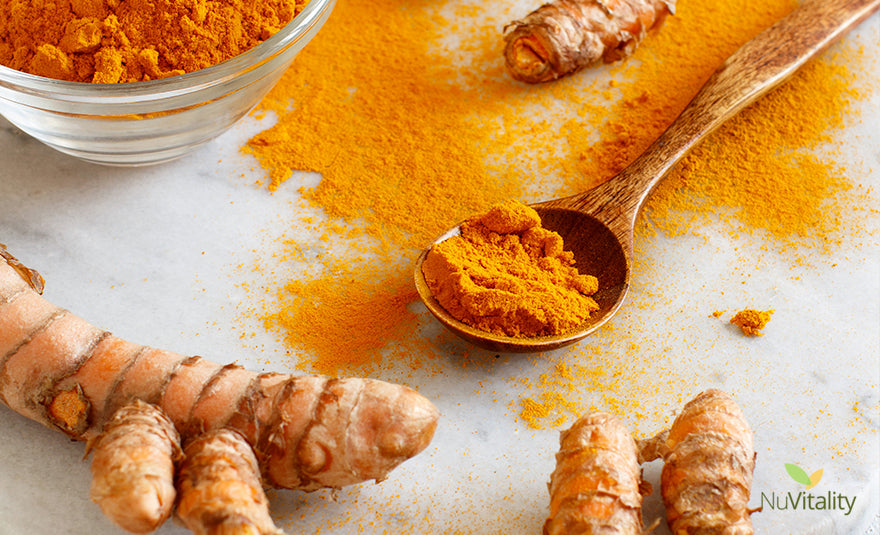
The science behind curcumin and piperine has examined how much the latter enhances the former's bioavailability. The evidence shows that piperine causes the bioavailability of curcumin to spike and improves the body's ability to absorb it by 2,000%. This enhancement means that you can reliably enjoy the effects of turmeric supplements for your back pain. One study, in particular, found that a 20 mg serving of piperine added to a 2 mg serving of curcumin enhanced the rate of absorption in the body and allowed the curcumin to enter the bloodstream far easier.
While this research most heavily benefits curcumin extract and supplements, you can use it to enhance turmeric. If you are set on consuming turmeric, adding black pepper to whatever you cook with the turmeric will enhance the curcumin's bioavailability. Just remember that the curcumin content of a turmeric root is extremely low, meaning absorbing it all will likely only yield minimal results.
There is no definitive answer as to why piperine can augment the bioavailability of curcumin. There are a couple of theories, but there has been little science to confirm either one. However, the main point is that piperine is a powerful tool for enhancing the bioavailability of curcumin. Once you have boosted the curcumin's bioavailability, you are ready to focus on the next step of taking curcumin for back pain.
Understand the Risks
Now that we know how to take curcumin for our health needs properly, a bigger question arises. While curcumin is a highly beneficial compound, it is not without issues. First and foremost, some suffer from side effects when curcumin is consumed in excess. For the most part, curcumin is considered safe for human consumption and can be enjoyed without much concern. However, there have been reports of some who have experienced nausea or diarrhea after consuming high doses of curcumin over an extended period. There have even been reports of skin irritation in some users.
However, these side effects are minimal, and the most critical risks when taking curcumin involve preexisting conditions or medications. For example, caution is urged for anyone who suffers from gallstones, as curcumin could exacerbate the issue. However, you will need to consult your primary care physician for a more in-depth analysis of how curcumin could impact your gallstones.
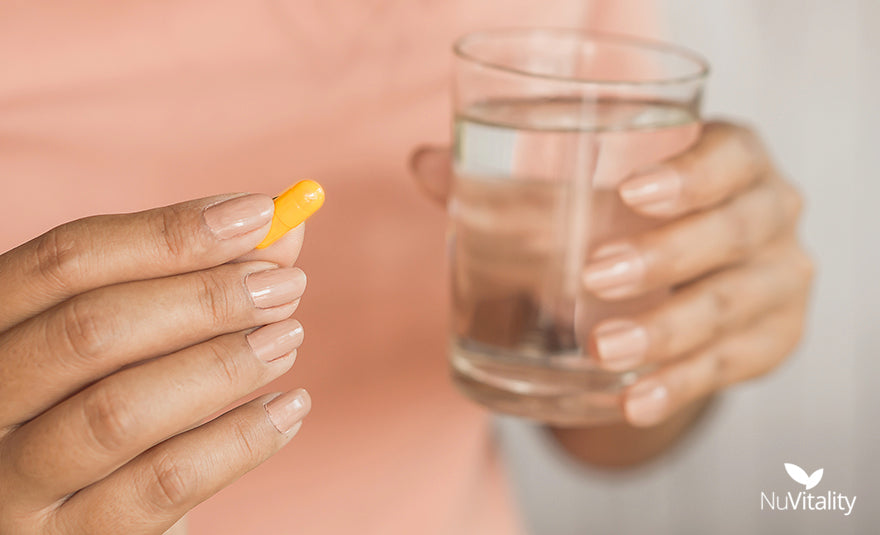
Aside from that, anyone who has one or more of the following conditions should avoid curcumin consumption:
- Pregnancy: Curcumin can cause estrogen levels in your body to fluctuate. This can cause uterine contractions or bleeds in pregnant women. In extreme cases, curcumin consumption can induce early labor or even cost you the pregnancy.
- Kidney Disease: If you suffer from kidney disease, the consumption of curcumin can cause your urinary oxalate levels to spike significantly. As a result, you are at a higher risk of developing kidney stones.
- Bleeding Disorders: There have been reports of curcumin increasing the risk of bleeding, which can be extremely dangerous if you have a bleeding disorder. Additionally, curcumin can delay the rate at which blood clots in your body and increases the risk of losing too much blood.
- Diabetes: Curcumin has been known to lower glucose levels in the blood. If curcumin is taken, people with diabetes risk experiencing health issues since the already low blood sugar content could plummet to nothing.
Keeping these conditions in mind before introducing curcumin to your system could save your life. However, you must also keep a clear head about potential interactions with prescription medication. Consult with your physician before taking curcumin if you are on any of the following medications:
- Aspirin
- NSAIDs
- Diabetes Medication
- Blood Pressure Pills
- Blood Thinners
These medications can suffer from negative interactions with curcumin and cause harmful or possibly lethal consequences. You should also stop taking curcumin for two weeks before any major surgeries and avoid its use if breastfeeding. Safety is one of the most important parts of using curcumin to manage back pain or any other issue. It is also important to note that curcumin dosage is not regulated by the Food and Drug Administration (FDA), meaning there is a bit of trial and error involved.
Fortunately, most curcumin supplements are created with an ideal dosage that was fueled by a recommendation from the Joint FAO/WHO Expert Committee on Food Additives (JECFA). The ideal is a dose of 1.4 mg of curcumin per pound of body weight a day. However, this recommendation is not officially sponsored by the FDA, so other products using curcumin as an ingredient might not always conform to this standard. Double-checking any products first could save you some trouble. This information leaves only one major question to answer. Where can you find a safe curcumin supplement that overcomes curcumin's bioavailability issues?
The Nu Healthy You
Back pain is remarkably unpleasant and can make everyday life impossible. Some back pain is severe enough to leave you confined to your bed for days before you can function again. Fortunately, there are options for mitigating that pain with turmeric curcumin if you take it properly. While turmeric might not be the best source of curcumin, finding ways to introduce the latter to your system could help you overcome a fair amount of pain.
That said, you will need to adhere to our advice if you want to ensure that the curcumin works and does not cause more problems than it solves. If you are willing to heed this advice, the only concern you should have left is getting a supplement you can rely on and trust.
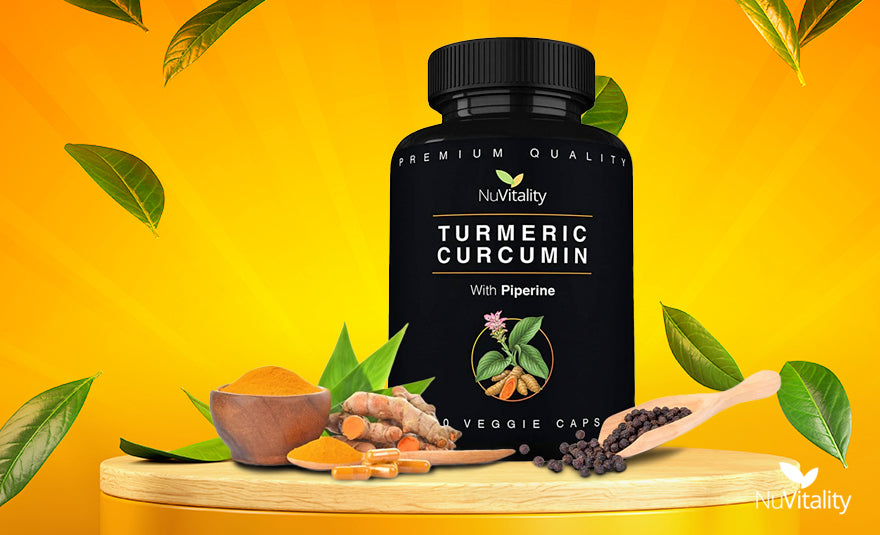
Fortunately, we at NuVitality are here to help. We offer a specialized curcumin supplement that uses natural extract combined with piperine. Meaning our supplement is safe and will not suffer any of the bioavailability issues that raw curcumin faces. We believe that using supplements made from natural products is the key to a healthy recovery and the start of a healthier lifestyle. So, if you are ready to begin your journey to the Nu, healthier you, be sure to consider visiting our website and ordering a bottle of our curcumin supplements.




